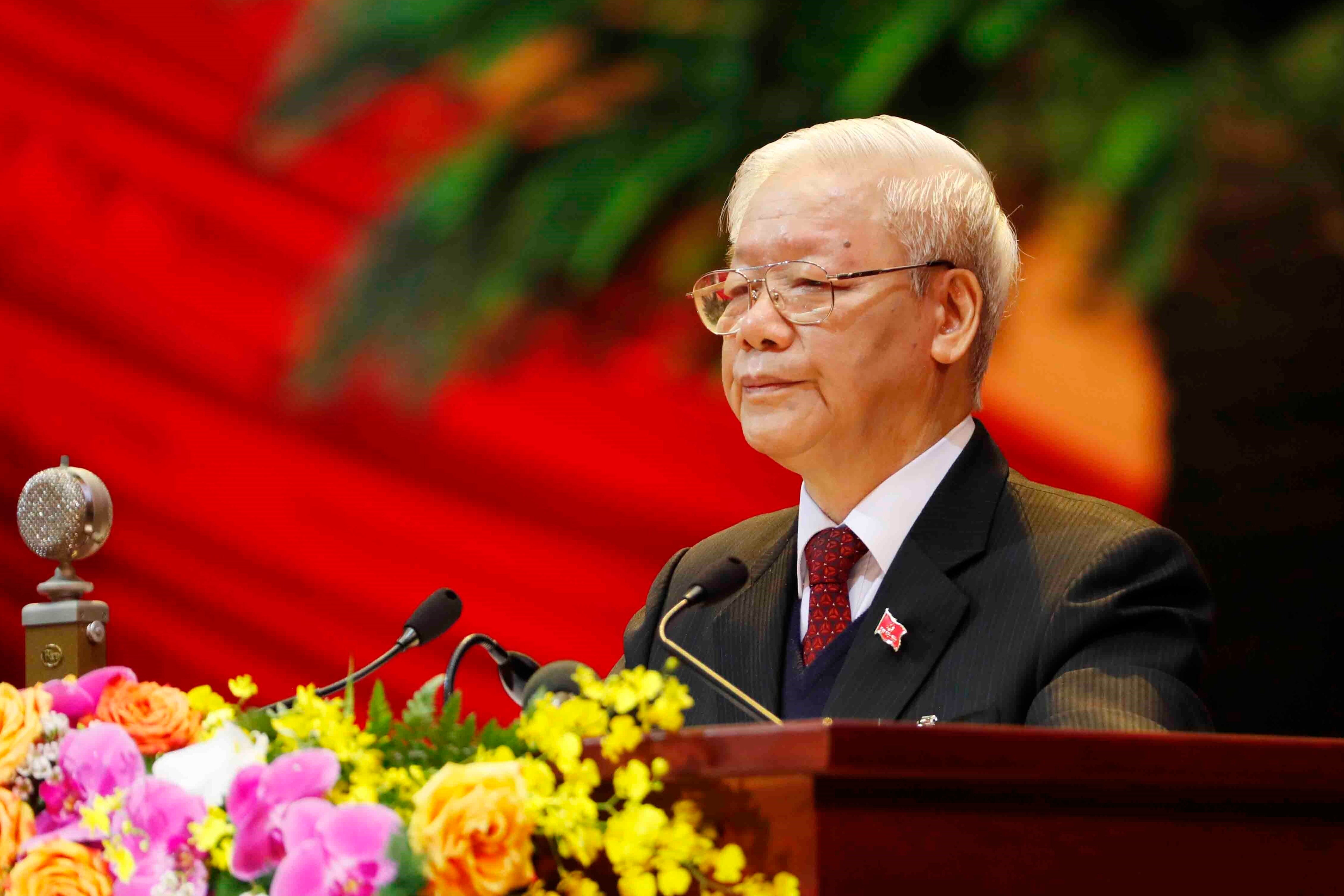Vietnam's Communist Party leaders warn of challenges ahead
Senior members of Vietnam’s ruling Communist Party caution that their country faced opportunities and challenges ahead, as they began a key meeting to set the nation’s path for the next five years

Your support helps us to tell the story
From reproductive rights to climate change to Big Tech, The Independent is on the ground when the story is developing. Whether it's investigating the financials of Elon Musk's pro-Trump PAC or producing our latest documentary, 'The A Word', which shines a light on the American women fighting for reproductive rights, we know how important it is to parse out the facts from the messaging.
At such a critical moment in US history, we need reporters on the ground. Your donation allows us to keep sending journalists to speak to both sides of the story.
The Independent is trusted by Americans across the entire political spectrum. And unlike many other quality news outlets, we choose not to lock Americans out of our reporting and analysis with paywalls. We believe quality journalism should be available to everyone, paid for by those who can afford it.
Your support makes all the difference.Senior members of Vietnam’s ruling Communist Party cautioned Tuesday that their country faced opportunities and challenges ahead, as they began a key meeting to set the nation’s path for the next five years.
Prime Minister Nguyen Xuan Phuc cited climate change, natural disasters and diseases as among the challenges ahead in his speech before the 13th National Party Congress and aired on state television.
“Globalization and global integration are on the right track, but they are met with the rise of extreme nationalism, strategic competition and trade wars," declared Communist Party General Secretary Nguyen Phu Trong, the nation’s most powerful leader.
Trong said the coronavirus pandemic compelled the world to strategically adjust policies.
Vietnam has recorded only 1,548 confirmed cases and 35 deaths from COVID-19, making it one of the world's few success stories in containing the virus and as a result, saw its economy expand last year.
The 1,587 party members attending the congress this week will also be deciding the country’s top leaders The delegates will elect 200 members to the Central Committee, which will choose members of the Politburo, the highest party body. The Politburo will then nominate for general secretary, president, prime minister and National Assembly chairman, and the congress delegates will vote on the nominations.
Conventional wisdom holds that Trong, 76, who has waged a much-needed fight against corruption, will be selected for a third five-year term as party general secretary.
Trong “appears to have been given a second special exemption from mandatory retirement at the age of 65,” Carlyle Thayer, emeritus professor of politics at Australia’s University of New South Wales, said in an email interview.
Thayer and other observers believe that Trong had favored a fellow Politburo member, Tran Quoc Vuong, to succeed him but sought to stay when his pick could not attract sufficient support from members of the Central Committee.
"The Party’s key challenge is to bring about a smooth leadership transition and introduce a slate of new capable leaders that will lead the country for the next five to 10 years,” said Le Hong Hiep, a Fellow in the Vietnam Studies Program at the ISEAS-Yusof Ishak Institute in Singapore.
If the age rules are changed for Trong and Phuc as a way to ensure continuity, he said, “This will lead to increasing unpredictability and instability in the Party’s succession politics in the coming years if the Party fails to restore these rules and norms afterwards.
“For the time being, however, perhaps the Party’s priority is to introduce an acceptable leadership structure that can help the Party maintain its unity and avoid a leadership crisis,” he suggested.
No changes in foreign policy are foreseen from the congress, with Hanoi’s major challenge continuing to be how to use its relations with the United States to counter China’s aggressive territorial claims in the South China Sea, which hinder Vietnam’s efforts to exploit offshore oil and gas.
“Regardless of who is selected for leadership, the most likely scenario is that Hanoi continues to balance,” said Derek Grossman, senior defense analyst at the California-based RAND Corporation think tank.
Hiep said more broadly that Vietnam will continue to pursue deeper international economic integration and diversify its foreign relations.
Human rights groups are urging Vietnam to cease its repressive activities towards critics, seen especially in its severe punishments of bloggers.
“The Vietnamese authorities’ intolerance of peaceful dissent has peaked under the outgoing leadership. The nomination of new national leaders provides an invaluable opportunity for Viet Nam to change course on human rights,” said Yamini Mishra, Amnesty International’s Asia-Pacific Regional Director.
“Viet Nam has made some strides in helping to realize economic and social rights for many of its people, but this progress has been severely undermined by its continued repression of freedom of expression, association and peaceful assembly. ”
The Congress is set to conclude on Feb. 2.
——-
Associated Press writer Grant Peck in Bangkok contributed to this report.